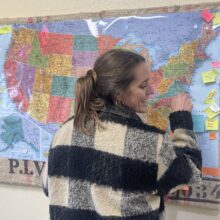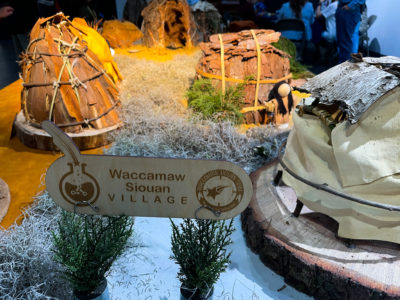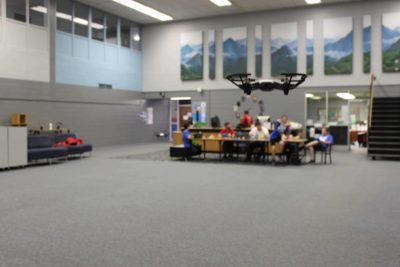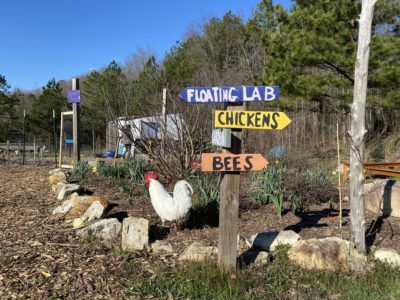In 1909, 35 men from Marion, North Carolina established Marion Manufacturing Company in McDowell County. A large textile mill, it employed residents of the town for over 70 years. And while the mill itself was mostly dismantled in 2010, the smoke stack and its legacy lives on in the people, careers, and subsequently students, of this rural mountain area.
This legacy is on display one Friday morning at Nebo Elementary. Reneta Crawley, a fifth grade teacher in McDowell County, asks a group of students to raise a hand if someone they know currently works for Coats North America.
A portion of the class’s arms shoot up in the air. Textile manufacturing still exists in the area, and Crawley and her colleague Donna Pyatt have worked it into a traveling STEM lesson.
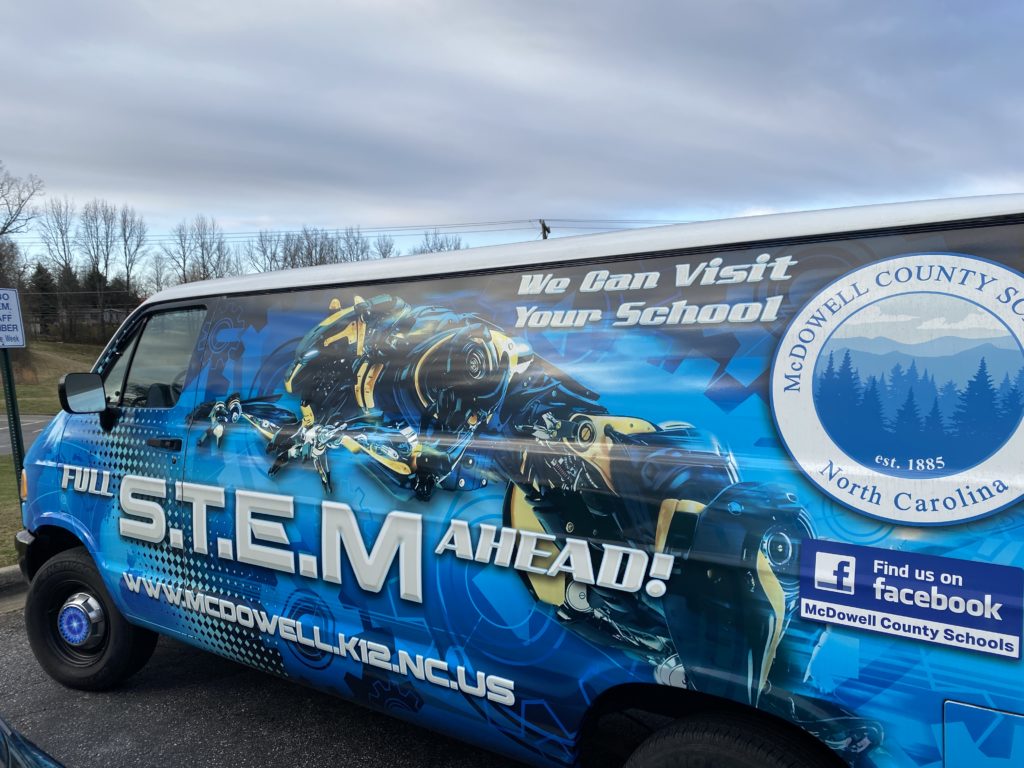
Both educators are Kenan Fellows, and Crawley was awarded the Burrough Wellcome Fund (BWF) Career Award for Science and Mathematics Teachers (CASMT) back in 2019. The money from BWF is what partially fuels this science lesson and the “Full STEM Ahead” van that carries this type of learning to fifth graders around the district.
Incorporating STEM with community
In both the fall and spring, Crawley and Pyatt are traveling to all eight elementary schools in the district and are providing one outdoor engaging STEM lesson for fifth graders. This spring, the lesson involves fabric and thread, something the people of McDowell know a lot about.
Crawley was able to spend three weeks working at Marion’s own Coats North America in the summer of 2021 as part of her Kenan Fellows program, as did Pyatt two years ago. Together, they created a science lesson working with material from Coats while incorporating a fifth grade standard, and created an exercise where students were able to explore the challenges of a job site.
In the lesson, students form groups of four, and after talking about different types of thread with Crawley and Pyatt, look at the materials under a microscope. Then groups were asked to hypothesize which thread would be strongest and were able to put their guesses to the test.
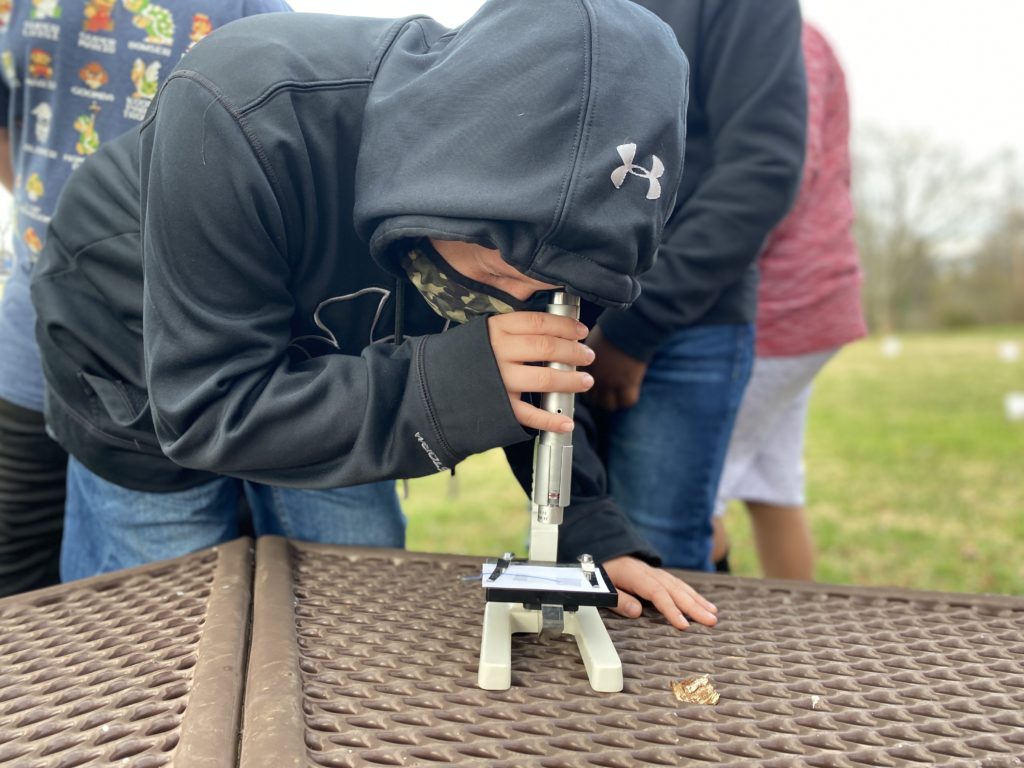
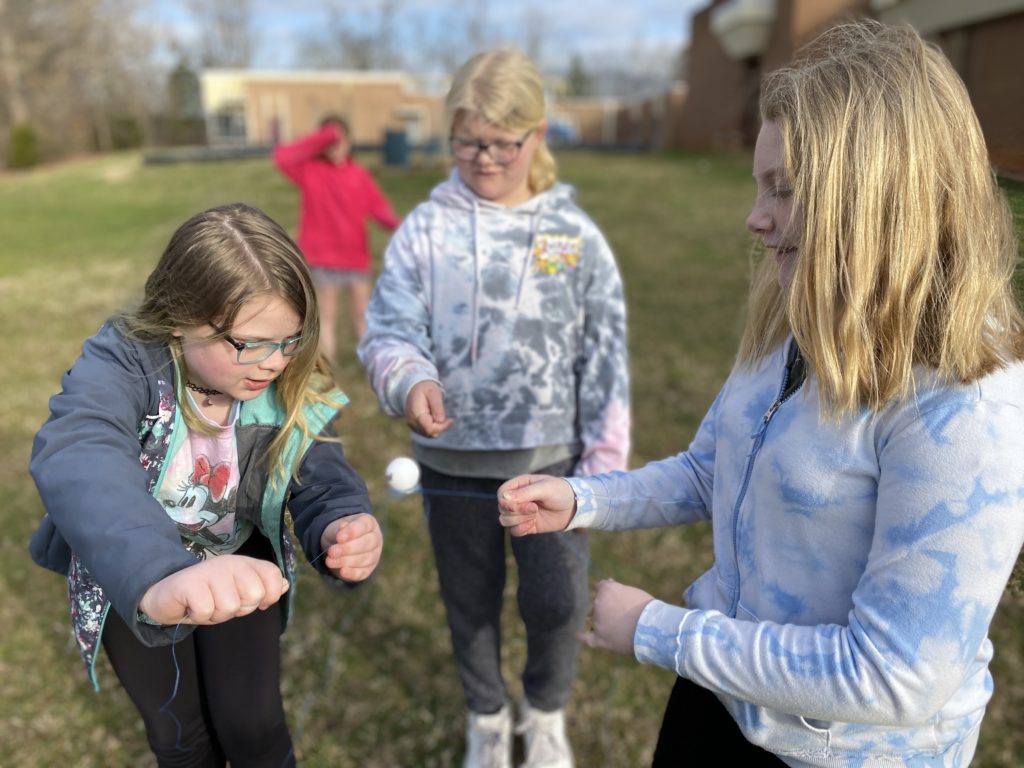
Using thread, a washer, ping pong balls, and a bucket, students were challenged to work together, and against the elements, to see how many balls they could move from one spot to another.
After each group got the hang of it, the teachers threw a wrench in their smooth working systems. Crawley explained to the students that sometimes at work people get sick or don’t show up. Each group had to then figure out how to do the same exercise with fewer and fewer participants.
Crawley has been a science educator in McDowell County Schools for 30 years. She loves the evolution-to-inquiry based learning she has experienced, and that her job is more about being a guide to the right answer. In this lesson, she and Pyatt are the facilitators and let the students find their way.
Crawley and Pyatt are obviously passionate about science. With the CASMT money, they were both able to travel to Costa Rica this summer with Ecology Project International for a week, working with teachers and scientists to protect the endangered leatherback turtle.
This experience turned into the first district-wide traveling STEM lesson for McDowell fifth graders, which took place in fall of 2021. Students learned about the habitat of the leatherback turtle and had to play both the roles of predator and conservationist in the lesson.
This summer Crawley hopes to outfit the van with a smart TV and Starlink broadband. BWF money was also used to purchase the wrapping of the van and materials, such as drones and ozobots, for future use.
The van has been to community events, but she hopes to attend even more as time goes on. She says the van and its initiative has been a team effort. The superintendent allowed use of the van, and her principal has been supportive of her taking on a district project.
What are Crawley’s hopes and dreams for the Full STEM Ahead van?
She wants her students to feel connected to their community and to their world.
Crawley knows these students can make an impact in McDowell County, “that what they do makes a difference, and that they have the power to make a difference.”
